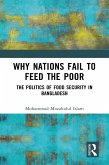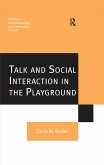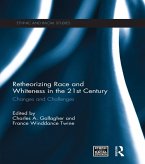Essay from the year 2023 in the subject Sociology - Politics, Majorities, Minorities, grade: 1,0, University of Exeter (History Department), course: The British World, c. 1860-1975, language: English, abstract: Why did a turn of "whiteness" occur in the nineteenth and twentieth century? And why at this particular time? In the following, this will be observed in more detail. This essay will therefore answer the question of why settler colonial nations did become more concerned with their 'white' identities around the turn of the twentieth century. Therefore, the paper first deals with the origin and the rise of scientific racism and explains how its development influenced the construction of white identities. Second, the essay briefly reviews immigration trends in colonial countries and looks at their contribution to the life of the white settlers. The third chapter deals with examples of anti-immigration legislation and policies that aimed to restrict non-white immigration, which to some extent emerged from the aspects of the previous two sections. In conclusion, the final chapter draws upon the entire topic and summarises the discussed points. William Edward Burghardt DuBois (W.E.B. DuBois) was an African American historian, sociologist, and journalist. He is considered one of the most important representatives of the Civil Rights Movement. In 1900, he predicted that racial segregation would be the key issue of the twentieth century. The above quote from 1910 comes from the New York magazine The Independent, wherein DuBois reported on 'his perception of a sudden change of consciousness sweeping the world' in his article 'The Souls of the White Folk'. Through his reference to the sudden awareness of 'whiteness' among whites, DuBois pointed to the emergence of a new subjective form of identification. At the turn of the century, societies underwent a sudden racial transformation. DuBois was, in a sense, one of the first to call attention to this dynamic of a 'new religion of whiteness' early on. He argued that while there had been colour consciousness in earlier years, this discovery of people's 'whiteness' and the accompanying 'colour line' was particularly a ninetieth and twentieth-century thing.
Dieser Download kann aus rechtlichen Gründen nur mit Rechnungsadresse in A, B, BG, CY, CZ, D, DK, EW, E, FIN, F, GR, HR, H, IRL, I, LT, L, LR, M, NL, PL, P, R, S, SLO, SK ausgeliefert werden.





![The Sociology of Colonies [Part 2] (eBook, PDF) The Sociology of Colonies [Part 2] (eBook, PDF)](https://bilder.buecher.de/produkte/39/39191/39191629m.jpg)



